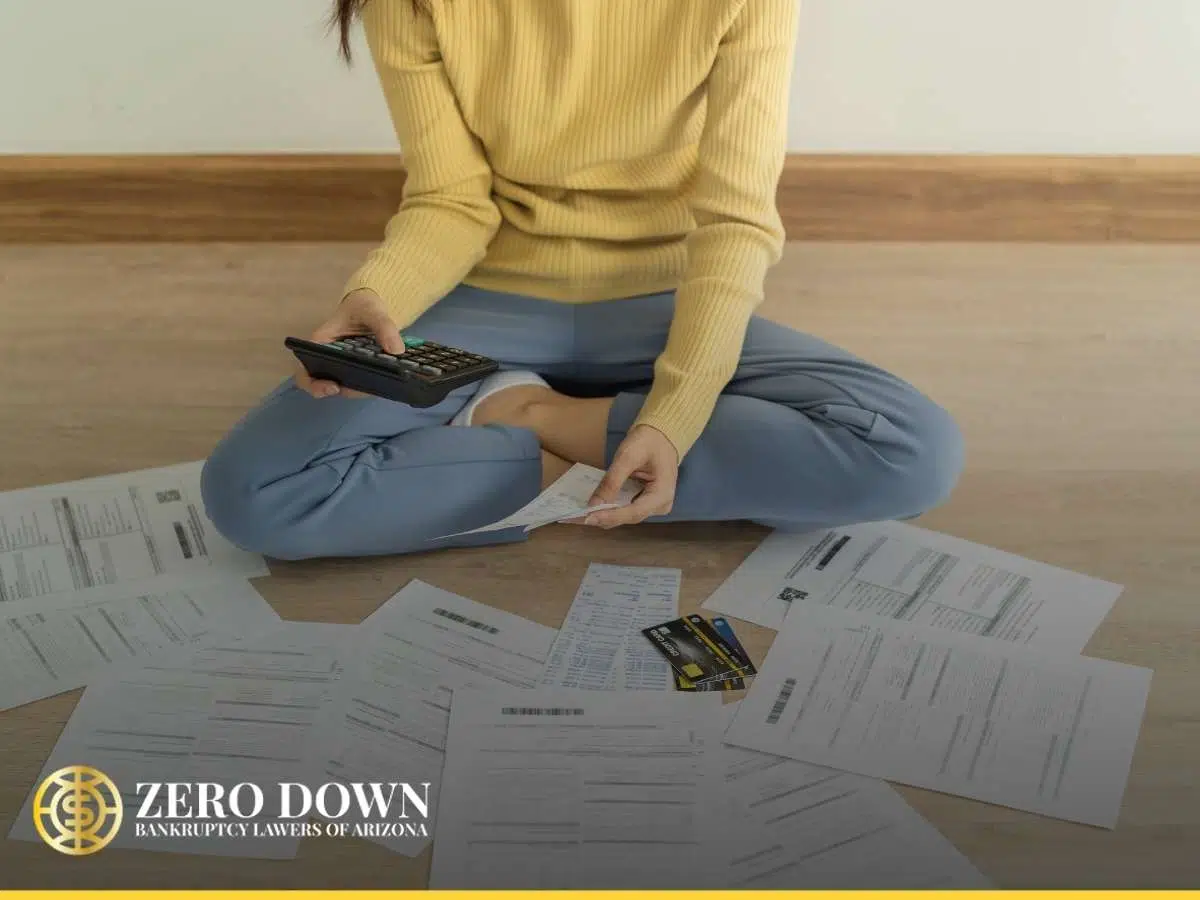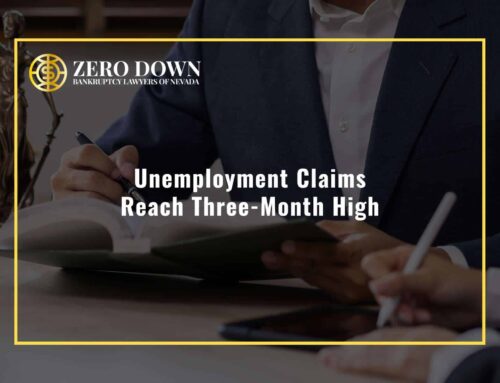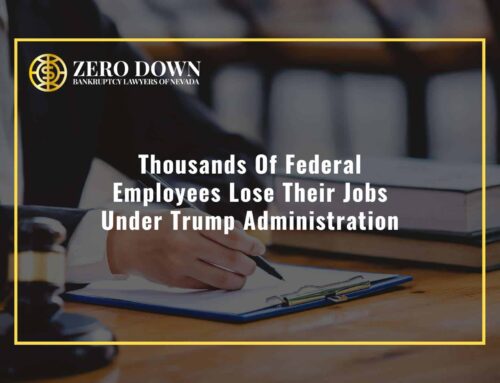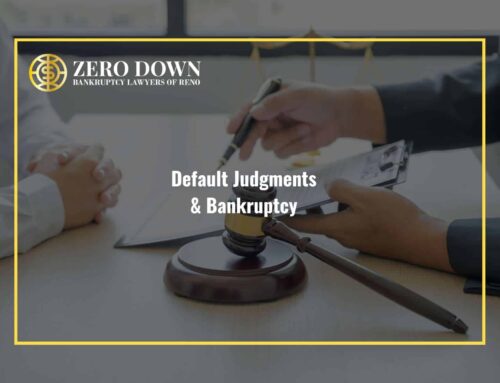The pandemic hit everyone hard, including the state of Arizona. When you combine COVID-19-related economic loss with the cost of living increasing at historical rates, you’ll see a substantial portion of the population fall into debt. When a trip to the grocery store costs more than rent was a few years ago in Arizona, it’s hard for families to keep up. Additionally, tight budgets mean that an unexpected emergency like an illness, car accident, or even reduced hours at work can create debt. Debt creates a domino effect- if your wages are garnished, you may fall behind on other payments due to a significant portion of your paycheck being automatically deducted and sent to your creditor. If your car is repossessed, you may have a hard time making it to work, keeping your job, or finding a new one. Filing bankruptcy can hold off your creditors and help address your debt situation, the manner in which depending on the chapter you file. Read on to learn more about the top reasons for filing for bankruptcy in Arizona in 2022. For answers to all of your Arizona bankruptcy questions, call 480-448-9800 to schedule your free consultation with our firm.
COVID-19
The pandemic began causing an economic downturn across the globe around the early months of 2020. Unemployment rates reached levels that hadn’t been seen since the Great Depression. Businesses of all sizes saw reduced profits, with many big-name companies declaring bankruptcy. While treatment for the virus was free of charge during the pandemic’s peak, it could also force anyone infected with it to miss more work than PTO they had accrued. Many people who were financially affected by COVID-19 are still experiencing those effects.
Although COVID-19 caused a widespread economic downturn, it didn’t cause the sudden influx of bankruptcy filings that one might expect. This is because many protections were implemented to help people struggling financially due to the pandemic. Families who fell below certain income levels received stimulus payments to combat the effects of COVID-19. There were also eviction moratoriums in place, as homelessness could increase the spread of the disease. These prevented landlords from evicting tenants for nonpayment of rent. Therefore, people had less incentive to file bankruptcy while the pandemic was in full swing. But now these protections have ended, and creditors can move in to collect their debts.
Divorce
Divorce isn’t just sad and stressful- it’s also expensive. The process itself is expensive, and an ex-spouse could be left with alimony and/or child support payments after the orders have been finalized. It could be difficult to adjust to a lifestyle with only one breadwinner instead of two. Additionally, a spouse could be left with an unmanageable share of debts resulting from property division. That’s why divorce is commonly considered to be a popular factor contributing to bankruptcy filings.
There are a few special considerations when it comes to filing bankruptcy shortly after a divorce is finalized. One of those is that your income for bankruptcy will be calculated using your average combined income from the past 6 months. That means that if your spouse worked, your average income will be inflated if you file immediately after the divorce. On the flip side, if you wait long enough after your divorce has been finalized, your household income may be much lower, allowing you to qualify for Chapter 7 rather than Chapter 13.
If you’ve been ordered to pay community debts in a divorce, this could create issues in bankruptcy. This is because an individual bankruptcy filing will only eliminate that specific spouse’s obligation to pay the debt. Creditors aren’t bound by family law property division orders and can therefore pursue the other spouse for repayment of the debt discharged by the bankruptcy. If the divorce orders included an indemnity clause, this gives the spouse who didn’t file bankruptcy the right to sue their ex for the value of collections stemming from a community debt they were ordered to pay.
A debtor who has recently gone through a divorce will need to be sure to have copies of the orders available in case the bankruptcy trustee requests to see them. The same goes for child support documents if the couple had minor children together. Child support and spousal maintenance payments could be crucial in qualifying for Chapter 7 bankruptcy or reducing plan payments in a Chapter 13 bankruptcy.
Job Loss
Losing a job is a disheartening experience. In someone’s younger years, the stakes may be lower as a similar job can be easy to find and there are fewer financial obligations of concern. But if the job market is stark, or you have children’s mouths to feed, or a mortgage to pay, losing your job could create immediate panic. You never know how long it will take to find new stable employment, and unemployment benefits are hardly enough to pay expenses for an individual, let alone a family. Additionally, losing your job could also mean losing your health insurance coverage.
If someone who loses their job was considering bankruptcy anyway, they may want to be strategic when timing their filing. Just as a divorce can decrease household income to help a debtor qualify for Chapter 7 bankruptcy, so can a job loss. Talk to a Chandler bankruptcy lawyer about calculating your average monthly income for bankruptcy purposes by scheduling your free consultation at 480-448-9800.
Medical Bills
Many clients come to us with the request to file a “medical bankruptcy.” While there is no technical medical bankruptcy filing option with the courts, this is the informal term used to describe a debtor who is filing bankruptcy because of medical bills. Medical debt is commonly considered one of the top causes of bankruptcy in the United States. Unfortunately, even those with costly health insurance can be saddled with insurmountable medical bills in the event of an illness or injury. This can become a compounding issue if the debtor also loses income from missing work.
Inflation
If you’ve bought groceries, filled up your gas tank, looking for housing, or otherwise spent money in the past year or so, you’ve probably noticed that the price of just about everything has skyrocketed. The inflation rate for September 2022 was 8.3%, compared to 3.2% in 2011. That means that costs are increasing faster than ever.
Inflation creates a ripple effect, making it harder for the lower and middle classes to get ahead. When basics like groceries and gas cost more, it makes it harder to contribute income towards savings. Arizona saw rental rates shoot up over 30% in 2021. This also makes it harder to save up to purchase a home, the cost of which has also increased exponentially. This traps Arizonans in a rental cycle with almost no protections, as Arizona doesn’t have rent control as some other states offer. When a family’s budget is stretched so tight, any unexpected expenses can cause them to fall behind on bills and possibly face creditor collection.
Emergency Bankruptcy Petition Filing
Filing bankruptcy triggers the automatic stay, which stops wage garnishments, vehicle repossessions, and more. But preparing a petition can take a while, which you might not have if creditors are anxious to collect on their debts. If you find yourself in an emergency debt situation, you should consider an emergency bankruptcy filing.
When you file an emergency or skeleton, bankruptcy petition, there are fewer items required up front, which must be supplied within a 2-week deadline of the skeleton filing. One of the most important things someone seeking to file an emergency bankruptcy needs is proof of income from the past 6 months. At the very least, the bankruptcy trustee needs to confirm that the debtor is eligible for the chapter of bankruptcy that they filed. The debtor will also need to have completed their first credit counseling course before filing an emergency bankruptcy petition. The creditor mailing matrix will also need to be completed for this step, which is usually done by pulling the debtor’s credit report using their social security number. Talk to a Phoenix bankruptcy lawyer for more details about the emergency bankruptcy process by calling 480-448-9800.
Arizona Bankruptcy Attorneys, Whatever The Reason For Your Debt
Whether it was an unexpected medical expense, job loss or divorce, or simply bad spending habits, Arizona Zero Down Bankruptcy can help you determine if and how bankruptcy can best assist you in improving your financial situation. We can execute an emergency filing if your situation is dire and needs to be addressed promptly. All of this comes at affordable rates with payment plans. You may even qualify to file your case for $0 down. To learn more, call 480-448-9800 to schedule your free consultation with one of our experienced bankruptcy lawyers.
Arizona Offices
Phoenix Location:
343 W Roosevelt Street, Suite #100
Phoenix, AZ 85003
Email: [email protected]
Phone: 602-609-7000
Mesa Location:
1731 West Baseline Rd., Suite 101
Mesa, AZ 85202
Email: [email protected]
Glendale Location:
20325 N 51st Avenue, Suite #134
Glendale, AZ 85308
Email: [email protected]
Tucson Location:
2 East Congress, Suite #900
Tucson, AZ 85701
Email: [email protected]











